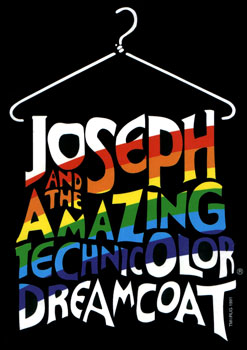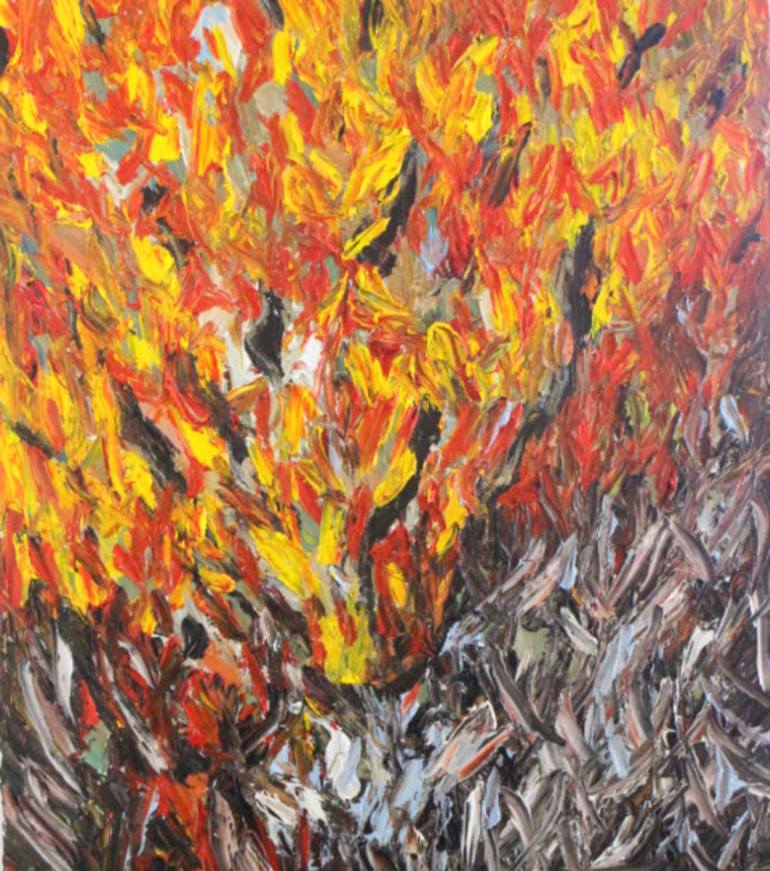A sermon from Sunday Evensong - thinking about connections, common humanity and seeking the good of the other (via Joseph!). It begins with a description of the TV2 film "Connected" which can be seen here. The texts were: Genesis 42:1-25; 1 Corinthians 10:1-24
A camera pans across a waiting room.
A voice over says: These people have a lot to talk about. They just don’t know it yet.
It’s a diverse group in terms of age, ethnicity, mobility and dress.
They walk into what looks like a sports hall; standing in a crowd.
The voice over continues: In a minute we’ll show them they have more in common than they think.
Thomas, says the conveyor of this ad hoc gathering, will you stand over there. And Aske.
She says: Thomas you live in a lovely house with his family.
That house had been Aske’s childhood home.
That’s right. They laugh.
Different families; playing games in the same garden.
Next, Mathilda is invited to stands opposite Aske.
They’ve faced each other before, on the rugby field aged twelve.
They give a hi-five, saying: Good game.
Inge’s an old woman. She steps forward, facing Mathilda.
When she was born 27 years ago, Inge’s was the first face Mathilda saw.
My midwife she says; they hug and cry.
Anna’s husband had a heart attack whilst out jogging.
The person who reacted quickly and saved his life comes and stands in front of her.
Knud looks at her. Thank you, whispers Anna.
Just below the surface, a total stranger can turn out to be someone you’re actually connected to.
The fireman, the online gamers, the dog owners.
Rana and Maher came to Denmark as refugees from Syria for years ago.
Dorrit and Jan stand next to them. They have a similar story from WWII.
And Rikke steps up: her great-grandfather took the risk of sailing all night to bring Jan to Sweden.
The voiceover kicks back in, saying. It’s easy to mind our own business; harder to mind the community.
This invitation to discover something in common, something that connects us comes from the commercial world.
The Danish company TV2 with it’s tagline ‘all that we share’ has produced several of these mesmerising and humanising mini-films.
They’re pieces of cinematic art which invite us to see beneath the surface of things; to step outside our own boxes and to recognise the common humanity beneath the surface of things.
Genesis draws us into the space of common humanity fraught with memories of hurt and the reality of power.
Andrew Lloyd Webber told us how Joseph loved his coat of many colour; how handsome and smart he looked, like a walking work of art. So memorable was this musical of a dazzling coat of colours, that one ordinand I know sang the lyrics to herself when translating Genesis in a Hebrew exam.
But there’s only so far you can go in improvising on the text with red and yellow and green and brown and scarlet and black and ochre and peach and ruby and olive and violet and fawn and lilac and gold and chocolate and mauve…
Lloyd Webber tells us of the dreams and the dreamer’s demise. Joseph sings of closed doors and a land of his own. We learn of Pharaoh being kept away with vision of fat and thin cows; and Joseph’s rise to be his right hand man.
This evening we come in at the chorus of ‘Those Canaan Days’: golden fields of corn are no more. Now the fields are dead and bare; No joie de vivre anywhere.
We’re a long way from the Joseph mega-mix number.
The scene is full of recognition and what remains unrecognisable.
Joseph recognises his brothers, but he treats them like strangers: in public there is a harshness to his tone, in private he weeps.
Before there can be a joyful reunion, there is a time of reflection.
Joseph perhaps recalling the arrogance of his youth as well as the wrong done to him.
The bothers have lived with guilt and remorse for twenty or more years.
They’ve seen their father’s heartbreak.
They’ve treated young Benjamin with more care than they did Jospeh.
Now in a desperate attempt to avoid starvation they bow before the one whose dreaming they’d despised.
They do not recognise the one sold into slavery; they don’t know of his imprisonment.
They bow before a leader; an unrecognised brother.
If TV2 were filming this perhaps they’d say: stand hear Joseph and you Reuben.
Your brothers divided by envy and united by love of your kin.
Perhaps they’d hug and weep, laugh or high-five.
Joseph can’t rebuild the trust that quickly. In shock and self-protection he sets his own test of honesty and truth. He will see his father and his brothers. They will live and not die.
The story does not end there: relief from famine becomes prosperity in a new land; prosperity becomes threat and enslavement. Slavery is turned to freedom; freedom means walking in the wilderness, trusting in promises yet to be fulfilled.
In his first letter to the Corinthians, Paul reflects on the time our ancestors spent in the wildness: he notes the faithful presence of God in the parting of the sea and in the guidance of the cloud; in the provision of manna, quail and fresh water.
And yet, as we learn elsewhere, they grumbled and complained. They longed for the cucumbers and garlic of Egypt.
The received commandments to love God and neighbour, and yet they fell into idolatry: the golden calf being no substitute for the holiness of a God who spoke in burning bush and the still small silence.
Paul gives to the Corinthians a warning from history: complaint led to idolatry, idolatry led to immortality. Hearts turned away from God become hearts that turn in on themselves.
Choose life, Paul is saying, that is at the heart of the commandment of love.
To choose life, can sometimes mean taking risks as Jacob and his sons did: seeking refuge in an unfamiliar land.
To chose love, can sometimes test our capacity to forgive, as Joseph moved from harshness to tears; living and loving beyond youthful vanity and sibling guilt.
It’s easy to mind our own business; harder to mind the community says TV2.
Paul reminds us that we are one in Christ, one in the bread we break and the cup we bless.
This is all that we share.
And in sharing, we choose life and love that moves beyond stereotypes; which challenges the corrosive prejudices of race, class, gender, age or sexuality.
We are to choose what is beneficial to others and what builds up.
As Paul says, Do not seek your own advantage, but that of others.
© Julie Gittoes 2019






